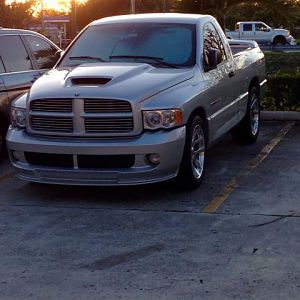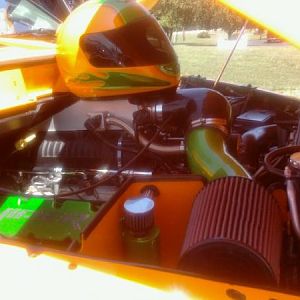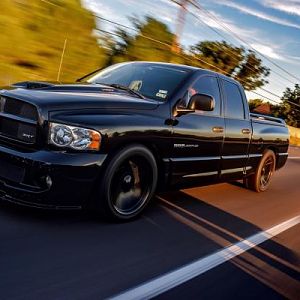Regarding Elevation and Air Density:
I've seen a full second in elapsed times and 10+ miles per hour difference in vehicles racing here during a 7700 footer and again at sea-level, for 1/4 mile racing.
Factoid #1: One-tenth of a second is a car length at 100 miles per hour (Smart cars not included) .
.
Forced induction vehicles still "suffer" at the higher altitudes, just not as much. Turbos and superchargers still have to "gather" air. If it is denser and already "pressurized" like it is at sea-level, it is easier to gather/pack the cylinders at any given turbo or impeller speed at sea-level.
That's why 1/4 mile records are broken at sea-level tracks.
Supercharger/Turbo kits we've installed here (3800' mean elevation) are nearly 3 psi lower than the same vehicle operating at sea-level.
Factoid #2: There is approx. 3.88 TONS** of air inside the average school gymnasium.
**Based on NASA air-weight calcs of 2.8446 lbs. per cubic meter**
No wonder the parents look so tired by the end of their kids basketball games!
Cheers
I've seen a full second in elapsed times and 10+ miles per hour difference in vehicles racing here during a 7700 footer and again at sea-level, for 1/4 mile racing.
Factoid #1: One-tenth of a second is a car length at 100 miles per hour (Smart cars not included)
Forced induction vehicles still "suffer" at the higher altitudes, just not as much. Turbos and superchargers still have to "gather" air. If it is denser and already "pressurized" like it is at sea-level, it is easier to gather/pack the cylinders at any given turbo or impeller speed at sea-level.
That's why 1/4 mile records are broken at sea-level tracks.
Supercharger/Turbo kits we've installed here (3800' mean elevation) are nearly 3 psi lower than the same vehicle operating at sea-level.
Factoid #2: There is approx. 3.88 TONS** of air inside the average school gymnasium.
**Based on NASA air-weight calcs of 2.8446 lbs. per cubic meter**
No wonder the parents look so tired by the end of their kids basketball games!
Cheers
Last edited:





